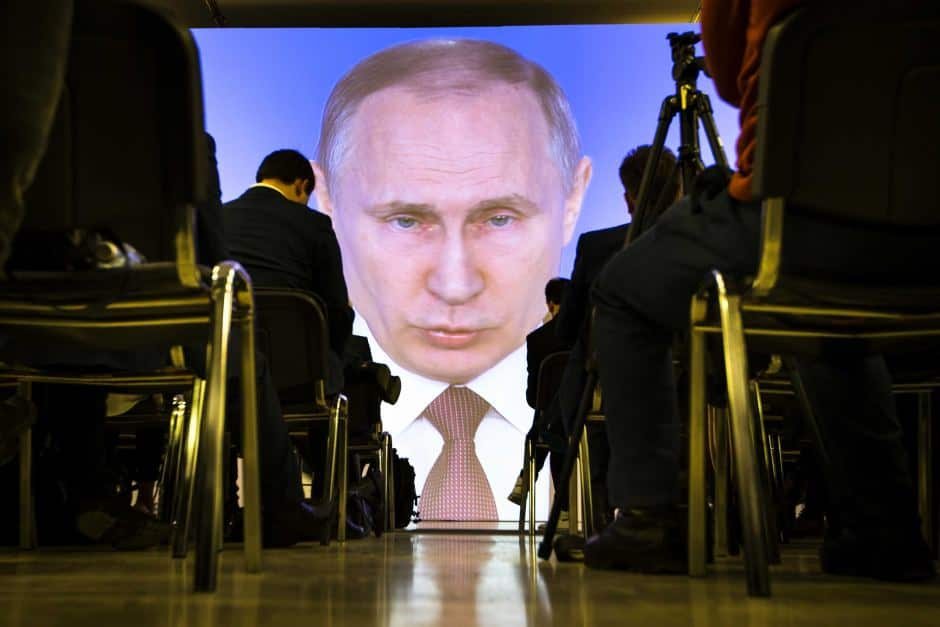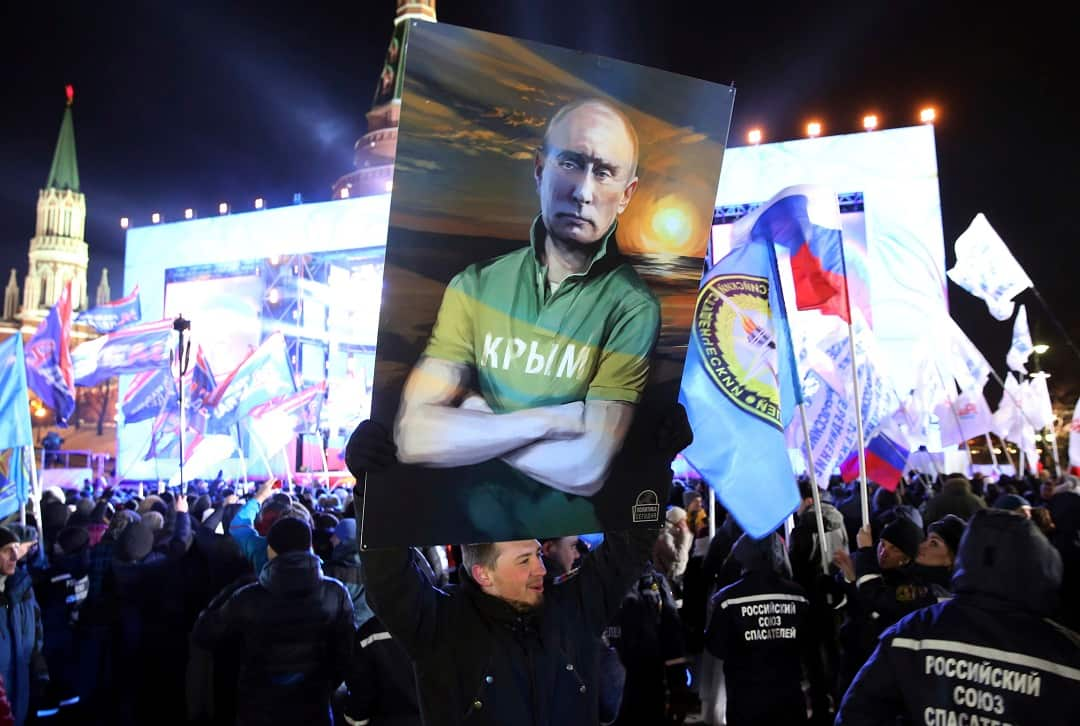Russian human rights lawyer Ivan Pavlov, visiting Australia as a winner of Human Rights Watch's Alison Des Forges Award for Extraordinary Activism, told SBS News that Moscow is promoting a hard line against enemies - both abroad and at home.
"War time, which we have now, dictates war rules," he said.
"When the whole country lives with a militaristic rhetoric, somehow everybody knows who is the enemy. United States is first enemy, Ukraine is second, and [the rest of the] world is third."
But, Mr Pavlov said, the crackdown on enemies begins at home. He specialises in cases relating to national security and freedom of information issues – and he says there has been a spike in such arrests since 2014, when conflict began with Ukraine.
"Before 2014, cases with state treason were like three cases a year, and after 2014, it became fifteen cases a year. So an increase of five times," he said.

"It's a message for the population in Russia to be careful: with what you say, with what you do, and whom you contact."
Mr Pavlov says that message is spread through pervasive state propaganda, entrenched through the government monopoly on media.
"The government hires a lot of experts and promoters, producers, journalists, show makers ... People become zombies," he said.
"When people come home, turn on the TV, it works in a background. Even [when] they don’t notice it."
The result: an atmosphere of fear, which Mr Pavlov said contributed to the recent election landslide for Russian President Vladimir Putin.
Listen to SBS Russian: “Russia is my country, and I am not leaving, says Ivan Pavlov”
Steele dossier
In 2016, former senior British spy Christopher Steele reached out to his Russian contacts as he compiled a dossier on then-US presidential candidate Donald Trump.

His final report contained suggestions of Russian election interference and compromising material, including videos involving sex workers at Moscow's Ritz Carlton, that could be used as leverage against Mr Trump.
"I don't know what they have on him, but I'm sure they have a lot from his visit," Mr Pavlov said, adding that he regards intelligence gathering on prominent visiting figures a standard practice by various different governments.
In the aftermath of the dossier's publication, there was a spate of arrests in Moscow, including leading cybersecurity expert Ruslan Stoyanov, and FSB state intelligence officers Dmitry Dokuchayev and Sergei Mikhailov – the FSB's deputy head of cyber operations, who was reportedly marched out of a meeting with a bag over his head.
Mr Pavlov is reportedly representing more than one of them.
"I can't tell you more details because I have restrictions. All of them were arrested in December 2016. All of them accused of state treason," he said.
"My clients (are) not guilty ... It's my belief. That's what I'm trying to defend."
He says they are being held in Moscow's Lefortovo prison, and while access is challenging, he believes they are not being physically mistreated. No one – his clients included, Mr Pavlov says - is keen for a public trial.
"I can say that there is an iceberg. There is a part which is above water, and there is a huge part that is underwater. And nobody wants to show parts which are underwater ... Even the people who are accused."
State-sanctioned assassinations?
Moscow has been accused of involvement in a number of successful and attempted assassinations of perceived opponents – most recently in the poisoning of former spy Sergei Skripal and his daughter Yulia in Salisbury.
Mr Pavlov doesn't believe the alleged Skripal attack is related to his clients' cases.
"There is an unwritten rule in secret services. Don't leave alive traitors," he said.
“This rule (is) related to the former employees of the state secret services. And the case with Skripal and Litvinenko, it is implementation of this unwritten rule. It can be that there is no order. (The) order is the rule. Somebody just executes it.”
However, Mr Pavlov also downplayed the role of Russia in the outcome of the 2016 US presidential election.
“I think it's quite overestimated. I don’t think that strong US election system can be easily broken with internet influence," he said.
"Everybody is trying to interfere. But the question is not who interfered, but results. Was it effective interference? I don’t think that can be called effective interference."
Despite the challenges, Mr Pavlov said he will keep working in his homeland.
"Life is hard but fortunately it's short. It helps to keep optimism. And continue to work in Russia," he said.
Mr Pavlov was recently awarded the Human Rights Watch's Alison Des Forges Award for Extraordinary Activism - one of the organisation's top awards.
"Ivan has relentlessly faced down the Russian security services, Kafkaesque courts, and media smear campaigns to provide a lifeline to some of Russia's most vulnerable defendants," said Deputy Director of the Europe & Central Asia Division Rachel Denber.
"It's impossible to overstate the courage and stamina that Ivan's work takes, and that Ivan has demonstrated over and over."

